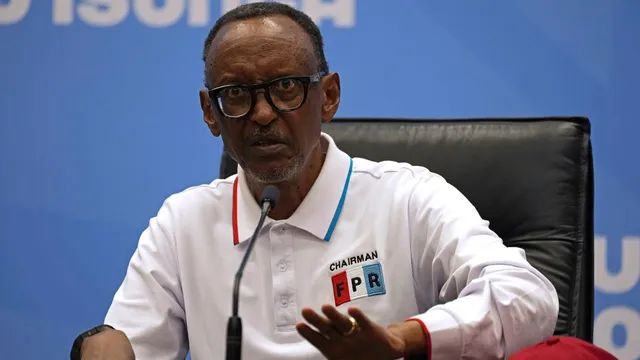
M23 rebels seize control of two vital towns in eastern Congo
2025-01-09 21:11- Rebels with the M23 group have taken control of the towns of Katale and Masisi in eastern Congo.
- The conflict in the region has led to the displacement of over 7 million people and worsened the humanitarian crisis.
- Local and national leaders express concern over the government's response, calling for action as the situation deteriorates.
Express your sentiment!
Insights
In recent developments in eastern Congo, the rebellious M23 group has claimed control over two key towns, Katale and Masisi. This shift in territorial control occurred over the past week, intensifying the ongoing security and humanitarian crisis in the region. Located approximately 80 kilometers west of Goma, Masisi is considered a strategic point for access into the country's interior. The M23 group, which is one among many armed factions operating in this mineral-rich area near Rwanda's border, has been involved in a protracted conflict that has caused the displacement of over 7 million individuals. Local politicians and civil society representatives have voiced their concerns over this alarming situation. Lawrence Kanyuka, a political spokesman for the M23, confirmed the seizure of Masisi on social media, reiterating the group's commitment to the protection of civilians despite its aggressive actions. Alexis Bahunga, a deputy for the Masisi territory, corroborated these claims, stating that the humanitarian situation remains catastrophic as people are forced into hiding and displaced across various camps. The Congolese army and government officials are under scrutiny for their perceived slow response to the advancing rebel forces. John Banyene, president of the civil society group Forces Vives du Nord-Kivu, criticized the government's passivity amid escalating violence, stating it was unacceptable for the government to lose territory without a fight. Reports from local residents illustrate the dire circumstances, with witnesses recalling instances of violence, such as bombings and casualties among civilians attempting to flee the conflict. This escalation comes in the wake of previous ceasefires, with the most recent agreement between the Congolese government and the M23 being signed in July. However, that ceasefire has seen violations, as noted by U.S. authorities expressing grave concern over the continued unrest. Accusations persist regarding external interference, particularly from Rwanda, which has denied providing support to the M23 rebels despite the Congolese and United Nations assertions of their involvement. Under these complex circumstances, the humanitarian crisis continues to deepen, affecting millions of lives in this tumultuous region.
Contexts
The humanitarian crisis in eastern Congo is primarily driven by conflict, poverty, and widespread human rights abuses. Since the late 1990s, the region has been marred by violence and instability, not only due to internal strife but also external influences from neighboring countries. Armed groups, including rebel factions and militia, continue to exploit the local population, leading to escalating displacement. The lack of effective governance and security has further exacerbated the situation, rendering millions vulnerable to recruitment by such groups and exposing them to increased risks of violence and exploitation. As the conflict drags on, essential resources and infrastructure have been severely underdeveloped, leaving communities in a state of desperation and depriving citizens of basic necessities like food, healthcare, and education. The effects of this crisis are devastating and multidimensional. Over 5 million people are estimated to be displaced, with many living in overcrowded and unsanitary conditions in camps, leading to outbreaks of preventable diseases. Women and children are particularly affected, facing increased risks of sexual violence, exploitation, and trafficking. Access to medical care is critically limited; maternal and child mortality rates are among the highest in the world. The ongoing violence also disrupts agricultural practices, resulting in chronic food insecurity, malnutrition, and starvation. The World Food Programme has repeatedly signaled that millions are in dire need of assistance, highlighting the urgent need for both humanitarian aid and conflict resolution strategies to mitigate suffering. Moreover, this humanitarian crisis has significant regional implications. The flow of refugees often destabilizes neighboring countries, leading to heightened tensions and an increased potential for broader conflict. International responses have often been inadequate and slow, with delayed humanitarian aid and insufficient support for peacekeeping efforts. The complexity of the crisis requires a coordinated approach that links immediate humanitarian efforts with long-term development assistance, promoting reconciliation and addressing the root causes of conflict, such as land disputes, ethnic tensions, and economic deprivation. In light of these ongoing issues, it is crucial for international actors, governments, and NGOs to prioritize a multi-faceted strategy that emphasizes the protection of civilians and sustainable development. This includes empowering local communities, enhancing governance structures, and fostering an environment conducive to peace and stability. Only through a concerted global effort can we hope to alleviate the immense suffering faced by the people of eastern Congo and pave the way for a more secure, just, and prosperous future.